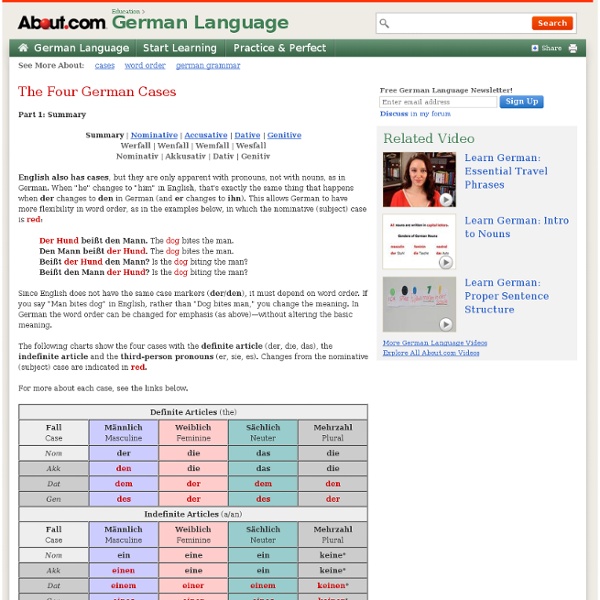



Online Etymology Dictionary sweet (adj.) Old English swete "pleasing to the senses, mind or feelings; having a pleasant disposition," from Proto-Germanic *swotja- (cognates: Old Saxon swoti, Old Frisian swet, Swedish söt, Danish sød, Middle Dutch soete, Dutch zoet, Old High German swuozi, German süß), from PIE root *swad- "sweet, pleasant" (Sanskrit svadus "sweet;" Greek hedys "sweet, pleasant, agreeable," hedone "pleasure;" Latin suavis "pleasant" (not especially of taste), suadere "to advise," properly "to make something pleasant to"). Words for "sweet" in Indo-European languages typically are used for other sense as well and in general for "pleasing." Then come kiss me, sweet-and-twenty! Also "being in a sound or wholesome state" (mid-13c.), and, of water, "fresh, not salt" (late Old English). sweet (n.) c.1300, "something sweet to the taste," also "beloved one," from sweet (adj.); the specific meaning "candy drop" is 1851 (earlier sweetie, 1721).
süß German[edit] Alternative forms[edit] süss (Switzerland) Etymology[edit] From Old High German suozi (akin to Old Saxon swōti), from Proto-Germanic *swōtuz, from Proto-Indo-European *sweh₂d-. Compare Low German sööt, Dutch zoet, English sweet, Danish sød. Pronunciation[edit] IPA(key): /zyːs/ Adjective[edit] süß (comparative süßer, superlative am süßesten) Declension[edit] Antonyms[edit] (sweet): sauer Derived terms[edit] Obst German[edit] Etymology[edit] From Middle High German obez, from Old High German obez, obaz (“fruit”), from Proto-Germanic *ubatją (“fruit, produce, increase”), from a compound whose first element represents Proto-Indo-European *obʰi-, *ebʰi-, *bʰi- (“on, toward, from, by”), and whose second element is Proto-Germanic *at, *ēta- (“edibles, food”), from Proto-Germanic *etaną (“to eat”), from Proto-Indo-European *h₁ed- (“to eat”). Cognate with English ovest (“mast”), Middle Low German ōvet, āvet, ōft (“fruit”), Low German Aavt (“fruits”), Dutch ooft (“fruits”). Pronunciation[edit] IPA(key): /oːpst/ Noun[edit] Obst n (genitive Obstes or Obsts, no plural) fruitHeute esse ich nur Obst. - Today I only eat fruit. Derived terms[edit] Synonyms[edit] Frucht
Apple is Masculine, Butter is Feminine, and the American is Confused | Overseas Adventures I finally started working through Schaum’s German Grammar (Fourth Edition) on October 15th and completed Chapter 1 “The Sounds of German: A Key to German Pronunciation.” I remembered most of the alphabet pronunciation from the German classes I took in high school and recent attempts at refreshing my memory, and I recognized several of the words used as examples. Remembering how to pronounce those words made it easier to pronounce others. As in English, the way letters are combined can affect pronunciation. Die Äpfel The next day, I started Chapter 2 “Nouns and Articles.” Fortunately, Schaum’s German Grammar gives a lot of guidelines to remember which gender applies in most cases. The chapter also covered the formation of compound nouns, which differs in some cases from English. Die Lesebrille Some compound nouns can also be formed using verbs which is done by dropping the -n or -en at the end of the verb. Das Obst ist frisch. Like this: Like Loading... Related Posts:
La Declinación Alemana Los casos Nominativo, Acusativo, Dativo y Genitivo. La declinación del sustantivo, adjetivo, artículos y números En español estamos familiarizados con la conjugación de verbos. Y sabemos que tenemos que añadirle una desinencia a la raíz del verbo según el tiempo verbal, la persona y el número. La declinación alemana consiste en añadir una desinencia a los: según el Caso (Fall o Kasus), el Género y el Número El Caso en alemán (Fall o Kasus) En alemán existen 4 casos: Nominativo (Nominativ) Acusativo (Akkusativ) Dativo (Dativ) Genitivo (Genitiv) Nominativo Se usa el nominativo si: La palabra está aislada:Si la palabra forma parte del sujeto*:Si la palabra forma parte del objeto del predicado y la oración esta formada por el verbo copulativo (sein, werden o bleiben)* Acusativo Se usa acusativo si: Si la palabra forma parte del Complemento Directo en Español en un 90% de los casos será acusativo en alemán*. Dativo Genitivo El genitivo no es tan dominado por los alemanes como los 3 casos anteriores.
“das Mädchen” – why is it grammatically neutral? | Oliver's rants and musings The question that comes up most often when someone is about to tell me how terribly difficult it is to learn the German language is: why is “das Mädchen” (German for “girl”) a neuter form and not of feminine gender? To this there are so many different angles, but I’ll condense it as much as possible. First of all, because of the use of the word “gender” in “grammatical gender” many people have the misconception that there has to be some kind of connection between the perceived gender of the “thing” or “being” described by a word and the grammatical gender of the word itself. If this was true, you’d probably be surprised by the differences between the grammatical gender of words in your native language and that of the counterparts in almost any other language. Need a simple example? But back to “das Mädchen”. The answer to it is probably somewhat disappointing to most people. Mädlein, Mädchen (kleine Made); vgl. d. However, I draw my actual evidence again from the Duden of 1930. // Oliver